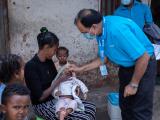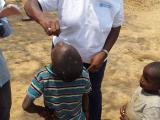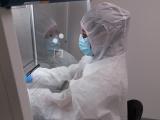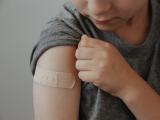The World Health Organization (WHO) announced today that 10 polio infections have been confirmed in a cluster of 22 suspected cases under investigation in Syria.
Wild poliovirus type 1 (WPV-1) has been isolated from the 10 samples, and genetic sequencing tests are under way to identify the origin of the viruses, the WHO said. They are the first polio cases to be detected in Syria since 1999.
Civil war ongoing in Syria since 2011 has prompted a humanitarian crisis that has displaced roughly 4 million people and triggered a flow of more than 2 million refugees to neighboring countries, including Turkey, Lebanon, Jordan, Iraq, and Egypt. Widespread conflict has shuttered many hospitals, led many healthcare workers to flee the area, and disrupted vaccination efforts.
The development follows an initial Oct 17 announcement of a cluster of "hot" acute flaccid paralysis (AFP) cases that were found in early October in Deir Al Zour province, located in the eastern part of the country on the border with Iraq. Global health groups define a hot case as paralysis onset in the presence of fever in a child younger than 5 years old. Paralysis is asymmetrical and occurs in children who are unimmunized or inadequately immunized with oral polio vaccine.
Initial results from the national polio laboratory had suggested in mid October that two of the cases could be positive for polio.
The WHO said a supplemental immunization campaign started in Deir Al Zour province began as soon as the first hot cases were detected and that health officials in Syria and neighboring countries started planning and implementing an outbreak response plan, even before the polio cases were confirmed. It added that in Syria a large campaign began on Oct 24 with the goal of vaccinating 1.6 million children against, polio, measles, mumps, and rubella—both in government-controlled and contested areas.
The risk of international spread of WPV-1 is high in the region, due to frequent population movements in the area and immunity gaps in key areas, the WHO said, adding that surveillance is under way to detect additional cases.
The detection of polio cases in Syria is the latest in a series of events that threaten global polio eradication efforts. In February, Israel began finding evidence of WPV-1 in sewage systems, which has sparked a widespread vaccination effort. Also, recent outbreaks across the Horn of Africa are putting areas such as South Sudan at high risk for reintroduction.
See also:
Oct 29 WHO statement





















